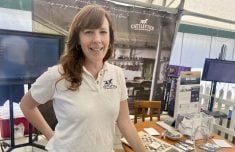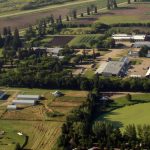We should be worried about the way we structure our farms. Each of us should have a plan to learn about our alternatives, primarily by assembling a trusted team with legal, financial and business planning expertise.
The stakes are large. As a founding director and member of the Canadian Association of Farm Advisors (CAFA), I can only tell you that if you want to know horror stories caused by being in a proprietorship, just ask a CAFA advisor. We all know them because in most cases we are right in the thick of things.
Read Also

Producers aren’t panicking over tariffs and trade threats
The Manitoba Canola Growers Association (MCGA) surveyed its members this spring to get a sense of how trade uncertainty was…
In my conversations with tax accountants, as well, they also tell me that in the majority of situations, a farm proprietorship is not the right structure. Yet proprietorships are still, by far, the most common way our farms are structured.
We need to ask ourselves why.
Farm operations require a more sophisticated legal structure than many other businesses. In part, this is because of the unique rules governing agriculture, but it is also because the farm is more than just a business. Across Canada, 90 per cent of our farms — accounting for nearly one million people — are family farm operations.
Partly because of the family nature of farming, it is easy to fall into a habit of thinking that says a proprietorship is the only option you really need. No one ever tells us there’s an alternative, we never ask… and life goes on.
Even so, a proprietorship can be the most dangerous way to run your business. For just one example of why that’s so, just look at how your will is written. In most cases, everything goes to your spouse or partner. (If you don’t have a will, the provincial estate jurisdiction will determine the division of your assets. Do you really want the government to tell your family how your farm will be passed on?)
Upon the sale or death of a proprietorship, the taxes are due in that year’s income. The income tax rates will be high, up to 44 per cent in Saskatchewan for example. The only item that can usually attract the capital gains exemption is the farmland. Tax effective sale of the assets can be very difficult, however, especially since being in a “have to sell” position rarely means you can get the best price for the assets.
The end result is simple. Die as a proprietorship, and you will pay.
A solution to the issue is to discuss the potential tax liability with your tax professional to determine the taxes due on sale of the farm or in the event of your death.
Where to start
I call it the “head bob.” Clients are in the office and nodding that they understand. Often, though, the question comes out as soon as they get to the truck. “Did you understand everything?” “No,” and vice versa. “So what did we just do?”
Many times, we trust our accountant and advisor with some of the most important decisions in our lives, but we don’t feel comfortable asking questions. We don’t want to seem unsophisticated or silly.
This is the worst thing you could do. As a professional working with farmers, I can tell you that we love questions, because they mean you trust us. We know that you are comfortable when you say, “Time out, we need to understand this better.”
It’s also essential to find good advisors that will work together as a team for you. For example, our firm doesn’t practise law, tax or accounting but we know great people across Canada that we can partner with and introduce our clients to.
In many meetings with clients, we find that the legal and accounting professionals will miss the points that the clients do not understand. As mentioned before, find the answers.
If you still don’t understand, find a CAFA advisor who will sit down and discuss the direction you are planning. A team meeting should be arranged to ensure that everyone on the team has a clear understanding of where the process is heading. It never hurts to recap or reconfirm. This is new business to most and it may take a few meetings to feel comfortable with the process. As part of this process it is very important to have the information documented. Otherwise, if there is an unforeseen death, the process stops.
Remember too, the process does need to be wide-ranging. The following are some points that I believe are necessary to have continuation of the farm business.
Assets and liabilities
Banking arrangements
Good estate documents including a Power of Attorney and Health Care Directive
Equipment loans and leases; land rental arrangements
Relationships with the lawyers, accountants so that survivors feel comfortable in discussing the future
Conversation with your partner as to what the future would be without your active farm business partner
How and where the survivors will live and survive
Be prepared for the tax liability — “Farmers are always more asset rich than cash rich” — What should be sold first?
The equipment capital cost allowance is used extensively. Will there be recapture depreciation?
What happens should both life partners meet their demise?
Life insurance
Retirement — RRSPs, pensions
The question
So, if there are so many advisors and all that knowledge out there, then why are so many of our farm businesses proprietorships? I think I know but you can e-mail me at [email protected]and give me your answer.
The process of farming is difficult enough without having poor business arrangements. CG
Don McCannell is a farm financial advisor and planner, and
president of McCannell Financial Group based in Saskatoon.
Don can be reached at [email protected],or at 306-382-7777














